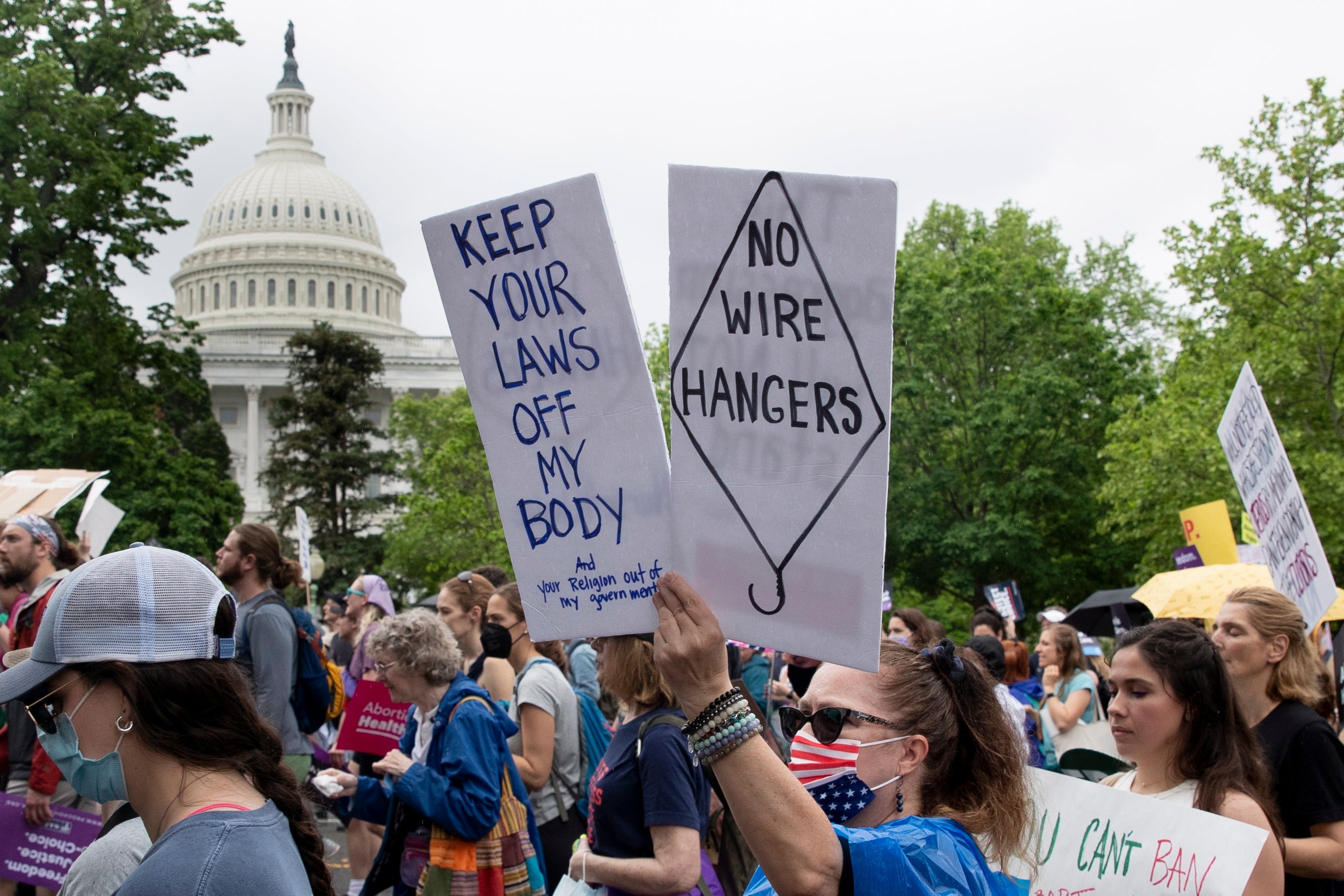Supreme Court approval rating dropped 10 per cent after leaked Roe v Wade opinion, poll shows
Approval was fairly steady among Republicans from March to May, but fell sharply among Democrats and slightly among independents

Your support helps us to tell the story
From reproductive rights to climate change to Big Tech, The Independent is on the ground when the story is developing. Whether it's investigating the financials of Elon Musk's pro-Trump PAC or producing our latest documentary, 'The A Word', which shines a light on the American women fighting for reproductive rights, we know how important it is to parse out the facts from the messaging.
At such a critical moment in US history, we need reporters on the ground. Your donation allows us to keep sending journalists to speak to both sides of the story.
The Independent is trusted by Americans across the entire political spectrum. And unlike many other quality news outlets, we choose not to lock Americans out of our reporting and analysis with paywalls. We believe quality journalism should be available to everyone, paid for by those who can afford it.
Your support makes all the difference.Public approval of the Supreme Court has fallen following the leak of a draft opinion that would overturn the Roe v. Wade decision guaranteeing abortion rights nationwide, according to a poll.
Disapproval of the nation´s highest court was especially pronounced among the roughly two-thirds of US adults who oppose overturning Roe, while support for the court was high among those in favor, according to the Marquette Law School Poll, which also found increased partisan polarization in approval.
The draft opinion obtained by Politico would overrule Roe and Planned Parenthood v. Casey, the 1992 decision that reaffirmed the right to end a pregnancy. Chief Justice John Roberts confirmed the draft was authentic and ordered an investigation, led by Supreme Court Marshal Gail Curley, to try to find the source of the leak.
The official opinion is expected to be released sometime in the next month. The case involves a Mississippi law that would prohibit abortion after 15 weeks, but if the justices go further and eliminate the abortion right first announced in Roe, roughly half the states are expected to ban or severely restrict abortion.
In the Marquette poll, 55 per cent disapprove of the court, up from 45 per cent in March. Approval was down a corresponding 10 percentage points, from 54 per cent to 44 per cent.
Among people who oppose overturning Roe, 74 per cent disapproved of the court in the new poll, compared with 54 per cent in March. Eighty-four percent of those who favour jettisoning the court’s main abortion precedents voiced approval of the institution, up from 65 per cent two months ago.Approval was fairly steady among Republicans from March to May, but fell sharply among Democrats and slightly among independents.
The survey, conducted starting about a week after the leaked document, shows further erosion in public support for the court; confidence in the court had started to decline in polling last year.
In September, the Marquette Law School Poll, among other surveys, found a drop in approval of the court following its vote to allow a restrictive Texas abortion law to take effect.
Views on abortion in the new poll were consistent with earlier surveys, with about two-thirds of U.S. adults saying they oppose overturning Roe.
Other polls, including those conducted by The Associated Press-NORC Center for Public Affairs Research, also have consistently shown only about 1 in 10 Americans want abortion to be illegal in all cases. A majority are in favor of abortion being legal in all or most circumstances, but polls indicate many also support restrictions especially later in pregnancy.
The new Marquette poll showed Americans were evenly divided over the Mississippi law outlawing most abortions after 15 weeks of pregnancy, similar to views earlier in the year.
__
The poll of 1,004 adults was conducted 9 - 19 May using a sample drawn from the probability-based SSRS Opinion Panel, which is designed to be representative of the U.S. population. The margin of sampling error for all respondents is plus or minus 3.9 percentage points.



Join our commenting forum
Join thought-provoking conversations, follow other Independent readers and see their replies
Comments